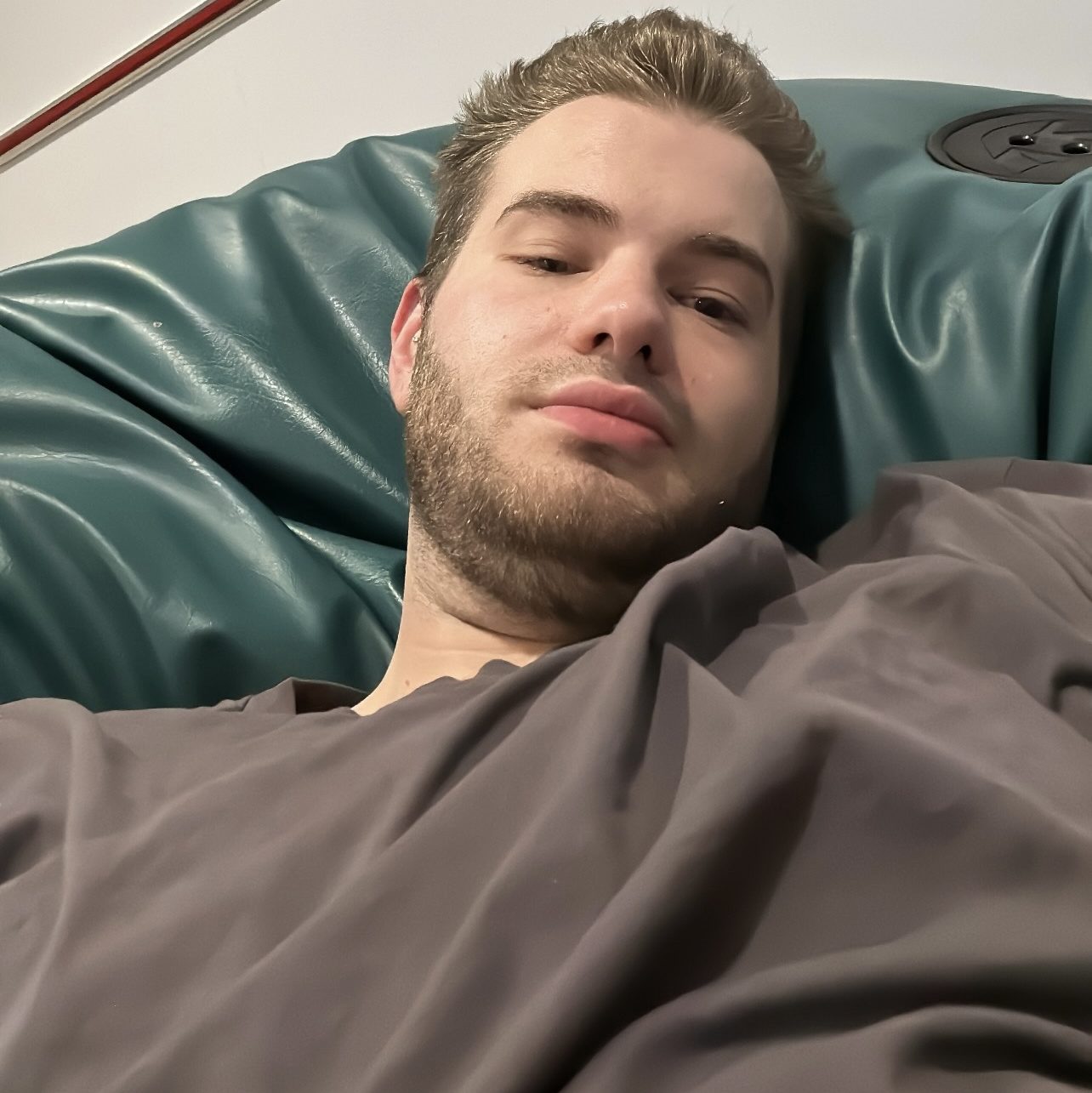Gay Youtuber Wants Stricter Regulation Of The Use Of Weight-loss Drugs After Being Hospitalised

A man who spent more than £1,000 ($1,300) on a weight-loss drug has claimed his use of it left him feeling “drained”, triggered “panic attacks”, and made him fear he “was going to die”.
Gay YouTuber Georgie Aldous, from the Norfolk seaside town of Great Yarmouth, who came out as gay at 16, is now campaigning for tighter government regulation around the use of weight-loss drugs.
Now 26, he told PinkNews that his third hospital visit was a wake-up call about the dangers around his use of Mounjaro, which he stopped taking in April 2024.
Georgie says he suffered severe side effects from his use of the weight-loss drug.Mounjaro, the brand name for tirzepatide, is a weekly injectable drug originally developed to treat type two diabetes. It is approved under the name Zepbound in the US.
The drug, which is similar to the better-known Ozempic, has, like many medicines, a list of side effects. According to WebMD, it “significantly slows down your gut”, which can lead to nausea, diarrhoea, constipation, heartburn, dizziness, rapid heartbeat, trouble breathing or swallowing, vision changes, hair loss, and, in rare cases, pancreatitis, thyroid tumours and mood changes, including depression and anxiety.
To avoid or reduce side effects, patients are advised to adjust their diet, such as eating water-rich foods and sipping clear fluids.
Last year, the death certificate of 58-year-old nurse Susan McGowan listed multiple organ failure, septic shock and pancreatitis as the immediate cause of death, but “the use of prescribed tirzepatide” was also recorded as a contributing factor, the BBC reported.
Georgie recalled losing weight rapidly – dropping from around 18 stone to 14 stone over five months. “The drug did work, it did what it was supposed to do,” he says.
Georgie did lose weight after taking the medicine. (Supplied)He began using it, he says, because he suffers with body dysmorphia. While the drug did help him to drop the pounds, he says its use also took a toll on his wellbeing. “I wasn’t hungry at all. I’d miss out on events because I didn’t want to go to meals. I just didn’t have the excitement to drive me,” he claims.
Georgie claims that his symptoms worsened as, without supervision, but following guidelines in place, he increased the dosage of the drug.
Mounjaro treatment starts at 2.5 mg once weekly for the first 4 weeks. Over 24 weeks, the dose can be gradually increased to a maximum of 15 mg per week.
“I had to leave places and go home. I just felt drained. I was void of energy, emotion, and I was having panic attacks. [During one episode] “I was crying and shouting that I was going to die because I honestly felt I was going to.”
‘The mental toll was horrendous’
Georgie says he saw doctors and visited hospital three times. Blood tests revealed severe vitamin and nutrient deficiencies. At one point, he says, his heart rate reached 150 beats per minute. The typical range is between 60 to 100 when resting.
During his final A&E visit, he was placed on a drip and given morphine.
“The mental toll was horrendous. I couldn’t believe I was in that position just because I felt I had to look different or better for myself,” he says.
Georgie was discharged with a treatment plan that included nutritional shakes to help him regain weight, and propranolol, a beta blocker used to manage anxiety symptoms.
“It was a traumatic experience. I had never been in hospital like that before or had to rely on people like I did. After the hospital, I never had it again.”
Following his experience, Georgie underwent intensive cognitive behavioural therapy, where he was diagnosed with panic disorder and health anxiety, exacerbated by obsessive blood-pressure monitoring.
Georgie says that pressure around body image made him turn to weight loss drugs.
“I don’t really date. When I’ve joined these apps, I don’t get matches from anyone, and that depletes your mental health even more. The stigma is that you have to look snatched, muscly, or fit into a category like a bear or a twink,” he says.
“That’s why I went on a weight-loss drug in the first place, because I’m always thinking about how I look.”
‘You don’t have to fit in a certain box to feel loved’
He urges others to see drugs like Mounjaro as a last resort. “You don’t have to fit a certain box to feel loved. It may seem like you’re unloved but you can find love in hobbies, friends and family.
“As a community, we need to do better. The stigma and the way people comment on [one another’s] appearance needs to change.”
Georgie, who made history in 2017 as Superdrug’s first male beauty model for its “B” cosmetics line, is now petitioning for stricter controls on the use of weight loss drugs like Mounjaro. He is calling for mandatory monthly blood tests for patients using the drug. The petition needs 10,000 signatures for a government response.
According to health platform Medino, new regulations introduced in February require patients to attend in-person or video consultations and for their GP to be contacted. Georgie believes monthly blood testing could help flag dangerous deficiencies.
The government’s website says Mounjaro is authorised for those with a BMI of 30kg/m² or higher (obese) and for those between 27–30kg/m² (overweight).
While BMI is often used to assess weight-related health risks, a report published earlier this year, reported by Business Insider, criticised its accuracy, saying that being classified as obese does not necessarily mean a person is unhealthy.
Pharmaceutical company urges users to ensure ‘they are receiving genuine Lilly medicine’
A spokesperson for Eli Lilly, the pharmaceutical company that makes Mounjaro, told PinkNews: “Patient safety is Lilly’s top priority and we take any reports regarding patient safety extremely seriously.
“Mounjaro (tirzepatide) should only be used when prescribed by a licensed healthcare professional, and prescriptions should be fulfilled and supplied by registered pharmacies and providers.
“We encourage patients to consult their doctor or other healthcare professional to discuss any possible side effects and to ensure that they are receiving genuine Lilly medicine.”
Mounjaro is classified as a prescription-only medicine in the UK but the drug remains easily accessible through online doctors.
Adverse effects can be reported to the Yellow Card scheme at yellowcard.mhra.gov.uk.
The post Gay YouTuber wants stricter regulation of the use of weight-loss drugs after being hospitalised appeared first on PinkNews | Latest lesbian, gay, bi and trans news | LGBTQ+ news.


